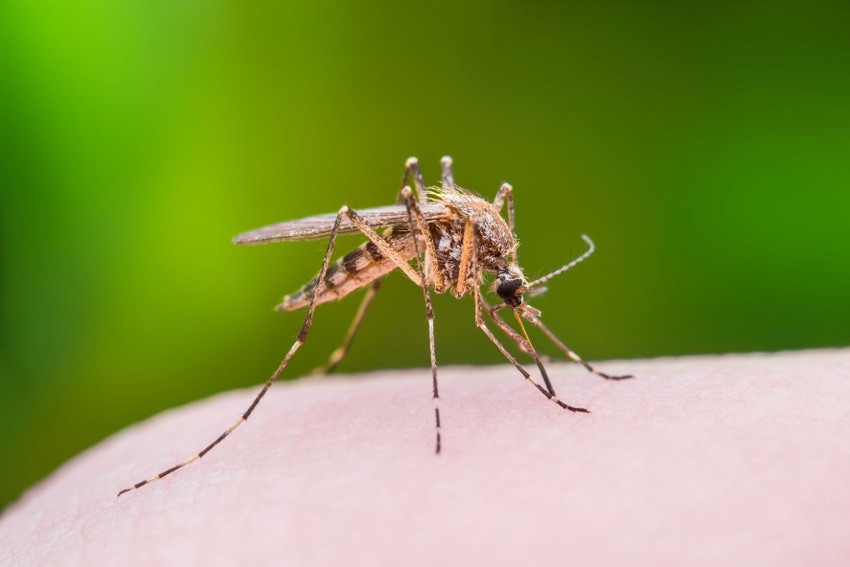Next steps in U.S. Japanese encephalitis virus preparedness
Since JEV is a mosquito disease, investigating effective mosquito control measures on swine farms is also included.
December 2, 2022

In October 2022, the Swine Health Information Center sponsored a Japanese encephalitis virus symposium attended by pork producers, veterinarians, animal and public health officials and pork allied industries. The symposium was conducted at the Center for the Ecology of Infectious Diseases, University of Georgia, with both in-person and virtual participation. JEV preparedness activities in the United States – entry and establishment risk assessment; research priorities supporting identification, surveillance, and response; and facilitating further information sharing through an ongoing CEID project – are underway after review of the Australian experience that informs the work and process.
Australian retrospective testing shows that JEV was circulating in the country's swine herds for up to a year before the clinical outbreak. In addition to the symposium, SHIC has already funded an updated, comprehensive entry and establishment risk assessment and a complete literature review to ensure the latest information on JEV genotype IV, the genotype causing the Australian outbreak, is available to help develop surveillance, identification and research.
A JEV research priority list based on the gaps in knowledge identified, including discussions during the symposium, has been drafted. The wide range of impact on the farms – mild to severe clinical outcomes and short to prolonged clinical disease – means that work needs to be done to understand JEV's epidemiology and how on-farm and/or regional factors influence the disease transmission and progression.
Additional areas identified for investigation include oral fluids and barn effluent surveillance, and confirming PCR testing would detect all JEV genotypes, including the genotype responsible for the recent Australian outbreak. Further understanding of the economic and trade impacts of a U.S. JEV incursion to pork producers, as well as identifying competent avian and vector hosts for JEV, will be important. Since JEV is a mosquito disease, investigating effective mosquito control measures on swine farms is also included. As part of this process, SHIC is in communication with Australian veterinarians, producers and researchers to discuss opportunities for JEV collaboration.
Also, SHIC has entered into a memorandum of understanding with CEID to build a JEV Information Sharing Network website to serve as an information clearinghouse for the global pork and scientific communities. The CEID will fill the website with JEV content with an expected launch in late December 2022 and ongoing content additions occurring in early 2023. The site address will be announced in the coming weeks and, per the MoU, the website will be maintained through at least 2023.
SHIC, launched by the National Pork Board in 2015 solely with Pork Checkoff funding, continues to focus efforts on prevention, preparedness and response to novel and emerging swine disease for the benefit of U.S. swine health. SHIC is funded by America's pork producers to fulfill its mission to protect and enhance the health of the U.S. swine herd.
Source: Swine Health Information Center, which is solely responsible for the information provided, and wholly owns the information. Informa Business Media and all its subsidiaries are not responsible for any of the content contained in this information asset.
You May Also Like



